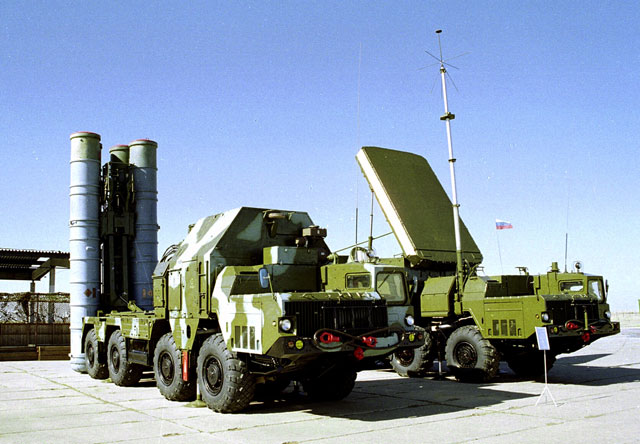PARIS — Russia's decision to supply Iran with the S-300 missile air defence system was seen by critics in Israel and the United States as proof this month's framework nuclear agreement was already making Tehran more of a threat.
But some experts said the controversial move could make it difficult for Iran's enemies to propose air strikes against its nuclear facilities, thus bolstering the case for a diplomatic solution.
Israel was predictably angered by Russia's decision to arm its arch-foe.
"Instead of demanding that Iran desist from the terrorist activity that it is carrying out in the Middle East and throughout the world, it is being allowed to arm itself with advanced weapons that will only increase its aggression," said Israel's Intelligence Minister Yuval Steinitz.
The United States took a similar line, with State Department spokeswoman Marie Harf saying: "We think given Iran's destabilising actions in the region, in places like Yemen or Syria or Lebanon, that this isn't the time to be selling these kinds of system to them."
But some analysts said Russia's decision was in line with its hopes to secure a lasting deal that will stop Iran building a nuclear bomb and removed global sanctions on the Islamic republic.
"The goal of the Russians is certainly not to help out the West, but nor do they want to see a nuclear Iran," said Francois Heisbourg, chairman of the Geneva Centre for Security Policy.
"This S-300 deal could be a way of ensuring Tehran stays in line with the negotiations."
The announcement serves two purposes — demonstrating to Tehran the advantages of sticking with the nuclear talks, while also making military alternatives more difficult for its opponents, said Jeremy Binnie, Middle East editor of IHS Jane's Defence Weekly in London.
"It is a carrot to Iran. But it is also a stick against US and Israeli officials who say the military option is still on the table," he said.
Israel and many US officials, particularly among the Republicans, have opposed the nuclear accord, saying air strikes are the only way to prevent Iran getting the bomb.
'Dark arts of'
Iran currently lacks the sort of sophisticated air defences that could take down modern fighter planes.
The capabilities of the S-300 are not fully known and have yet to be tested in a real-world combat situation.
"We are talking about the really dark arts of air defence here," said Binnie.
But the S-300 would be a major upgrade of the country's defences, and the updated V-series being offered by Russia will also allow Iran to intercept missiles fired by regional foes such as Saudi Arabia.
It may not be a match for the latest US planes, said Andrey Bablitskiy, from the PIR think tank in Moscow, "but they could make an operation more costly and make them think twice".
Iran has also invested heavily in radar and jamming technology to help spot stealth bombers and other foreign aircraft — capabilities it demonstrated when it brought down a US spy drone in 2011.
Despite calls from hawks in Washington and elsewhere, it has never been clear whether enemy air strikes could have "a meaningful impact" on Iran's nuclear capabilities even without a high-performance defence system, said Binnie.
"They can get an aircraft over Iran, but can they carry enough bombs and can those bombs have enough penetration ability? It would be hard," he said.
Offensive or defensive?
Nor is it certain whether Russia had to ban the supply of the S-300 system in the first place.
The original sale was agreed in 2007, and was only called off by Russia two years later as a "voluntary" move to show its dedication to the nuclear talks, in which it is working alongside fellow UN Security Council permanent members the US, Britain, China, and France plus Germany.
Loopholes meant the S-300 system could possibly have been exempted from the sanctions regime on the grounds it is only a defensive system.
"It's debatable," said Binnie. "It has a range of 300km that means it could shoot down aircraft in another country's airspace, and you could use it for surface-to-surface missiles.
"But you wouldn't want to — it is not designed for that and would not be very accurate."
Despite its statement against the S-300 deal, the US has effectively accepted that Iran will soon resume arms purchases.
Its criticism may have been designed simply to placate allies in the region such as Israel and Saudi Arabia that have been deeply distrustful of the peace process.
"[The Americans] weren't rolling on the floor in a rage," said Heisbourg. "Their protest felt like it was just for show."
